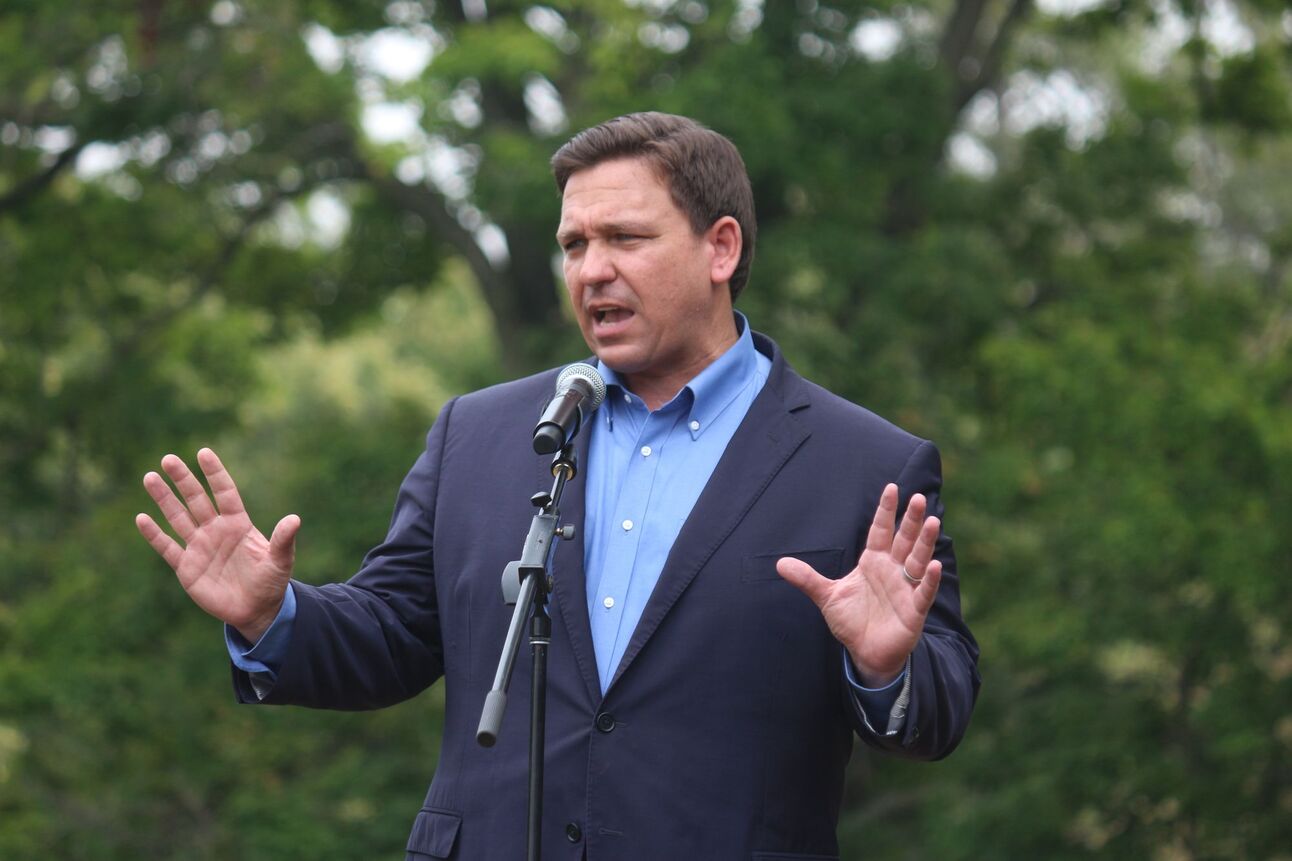
What’s happening: Florida Gov. Ron DeSantis, trailing former President Donald Trump for the Republican nomination, is doubling down on January's Iowa caucus as a make-or-break moment for his campaign. Despite numerous public appearances with Iowa’s star Republican governor, DeSantis has failed to make meaningful inroads in the state.
The strategy: The DeSantis campaign is modeling its strategy on the 2016 campaign of Sen. Ted Cruz (R-Texas), which was successful in the state. In fact, a number of former Cruz advisers are working on the DeSantis campaign in Iowa.
Why Iowa: It is conventional wisdom in politics that wins in early primary states can catapult candidates to the nomination. Iowa’s Republican base is considered more socially conservative than the broader Republican electorate—including in other early primary states like New Hampshire and South Carolina. DeSantis, positioning himself to the right of Trump on abortion and LGBT rights, is hoping this will galvanize that base to put him over the top in the state. Trump, meanwhile, faces attacks in the state for being more liberal than DeSantis.
Not a foolproof plan: Despite a DeSantis aide's belief that a DeSantis could “stall Trump's momentum” in Iowa, it’s worth remembering that the last GOP winners of the Iowa caucuses—Ted Cruz in 2016, Rick Santorum in 2012, and Mike Huckabee in 2008—failed to win the nomination for president.
A deciding factor: One expert says the key to Cruz’s 2016 victory in Iowa was his strong “ground game” and interactions with voters. Yet, the DeSantis campaign was criticized for being “too online,” and some reportedly think DeSantis is awkward. With lower-than-ever poll numbers, no explicit endorsement from Iowa’s governor, and reports of Fox News souring on his campaign, a strong ground game and connections to voters will be critical.
What DeSantis is saying: The Florida governor maintains that it’s still early in the race, telling Fox News’s Jesse Waters that most voters still “aren’t paying attention.” But as Iowa confirms its mid-January voting date, the clock is ticking for candidates to lay the groundwork in early primary states.



